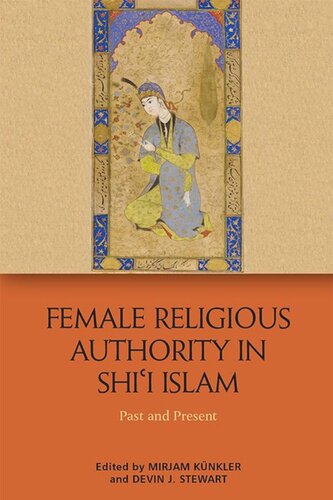

Most ebook files are in PDF format, so you can easily read them using various software such as Foxit Reader or directly on the Google Chrome browser.
Some ebook files are released by publishers in other formats such as .awz, .mobi, .epub, .fb2, etc. You may need to install specific software to read these formats on mobile/PC, such as Calibre.
Please read the tutorial at this link: https://ebookbell.com/faq
We offer FREE conversion to the popular formats you request; however, this may take some time. Therefore, right after payment, please email us, and we will try to provide the service as quickly as possible.
For some exceptional file formats or broken links (if any), please refrain from opening any disputes. Instead, email us first, and we will try to assist within a maximum of 6 hours.
EbookBell Team

4.3
98 reviewsIslamic religious authority is conventionally understood to be an exclusively male purview. Yet when dissected into its various manifestations – leading prayer, preaching, issuing fatwas, transmitting hadith, judging in court, teaching law, theology, and other Islamic sciences and generally shaping the Islamic scholarly tradition – nuances emerge that hint at the presence of women in the performance of some of these functions.
This collection of case studies, covering the period from classical Islam to the present, and taken from across the Shiʿi Islamic world, reflects on the roles that women have played in exercising religious authority across time and space. Comparative reflection on the case studies allows for the formulation of hypotheses regarding the conditions and developments – whether theological, jurisprudential, social, economic, or political – that enhanced or stifled the flourishing of female religious authority in Shiʿi Islam.